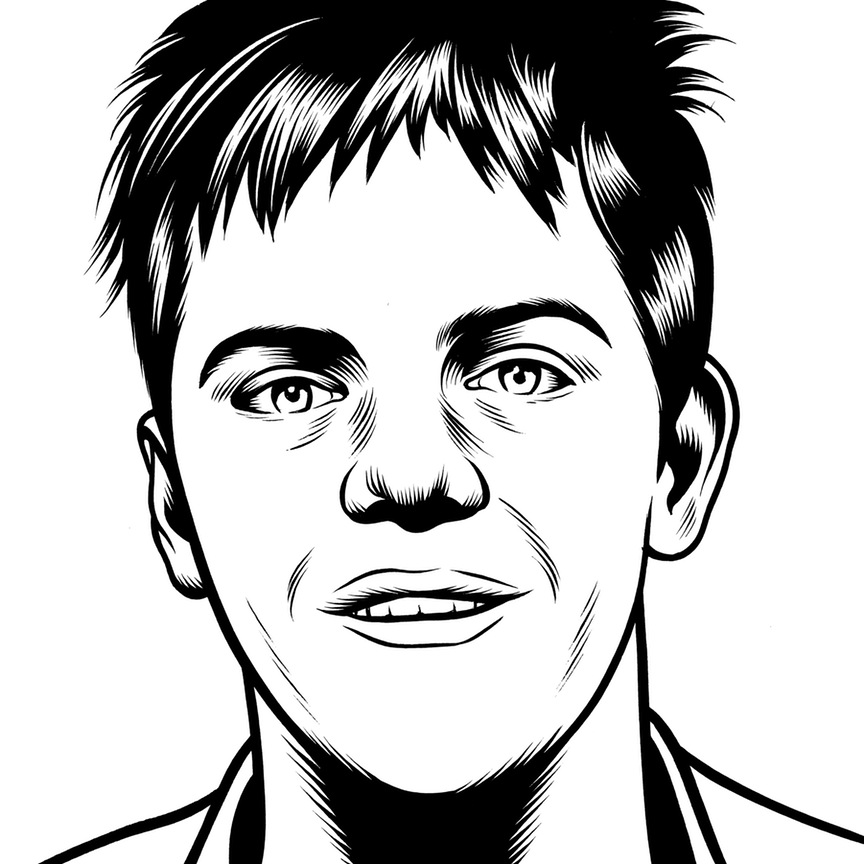
NICO MUHLY: I think my generation is a lost generation in a way. I didn’t really get the Internet until high school; I didn’t really get any of that stuff until college—an MP3 was in my freshman year of college. I had an MP3.
THE BELIEVER: I remember when I had just one. Third Eye Blind, “Semi-Charmed Life.”
NM: I had Cher’s “Believe” or whatever. What even was an MP3? But you had it, you dragged it to this thing called Winamp—it was crazy. So the records that I loved were these beautiful objects—Arvo Pärt on ECM, or all that Adams and Glass on Nonesuch, and you just held these albums and touched the paper, and it felt so delicious. And yet over the course of being in college, that faded away. We collected MP3s and things.
But what didn’t fade up at the same time was, in conservatories, an awareness of what any of that was. So I ended up with a completely analog experience at Juilliard. Even in my last year of my master’s you would still be handed a cassette tape or DAT of your concert—“Here’s the stage, here’s the microphone, here you go, here’s your piece.”
So what people of my year found, when we left school, was this landscape of “IM it to me,” “Let me hear it.” And it was like: “Oh, let me somehow take this cassette tape, plug it in….” We had this essentially undocumented work.
I just didn’t entertain the idea that my music would ever become available in any of the ways that I had previously known music to be available. I couldn’t imagine that one day the phone’s going to ring and it’s going to be Nonesuch saying, “You know what? Even though we haven’t heard any of your music, because it’s all on cassette tape, we believe in you. So why don’t you take this money and record your choral works.”
It’s this weird generational thing about how people access music. The people who were and are still, to a certain extent, in control of the record industry deal with things in an analog way, going to concerts, buying something in a store. Whereas for people my age it’s become this more abstract thing. “Oh, you want the new Hot Chip album? Here it is,” and then it’s suddenly in your house—and it hasn’t even been released.
I had been working for Philip Glass for a bunch of years and he has his own way of doing things, too, which is to make everything as available as you can, and I had been thinking of that and just going about my life, and then through Björk I met [Icelandic producer/musician] Valgeir Sigurðsson.
We had been working together for a couple months and he just thought I was a pianist or some kind of arranger or something, but finally he said: “Oh, someone told me you were a composer. What does your music sound like?” And I was like—“Oh, I’ve got this cassette tape!” At this point I had actually paid forty-five dollars to have it digitized—so you play the MP3 and hear thekhhhhh of the cassette player. At first, he said, “Wait, are you kidding? What the fuck is this? Where did you record this?” He was adamant. “We’re doing something. We have to fix this, this is ridiculous.” So in a sense, it was a pity fuck.
He was really the first person involved in recording anything who wasn’t like, “Let me hear an MP3. Oh, you don’t have one? Send me one when you have one.” He was instead, “Oh, you don’t have one? Let’s make one.”
So he and I just started scheming about how we would make this happen, and very quickly we said fuck it to having a mic above the stage, let’s just say forget about recording everything at the same time. Let’s forget that whole [classical music recording] model, just to see what happens. I couldn’t have been happier to say good-bye to all that. You would get an ulcer trying to get everything perfect. The performance was it, it was all you had—everything I wrote for four years, I only have one tape of it and you have no control. If a child sneezes, it’s there forever.
An interview with Nico Muhly (October 2008).




